Conversion ruling ends decades of official shunning of Reform, Conservative
Few converts are likely to be affected by the High Court’s decision, but the court itself may face renewed calls on the right to weaken its powers
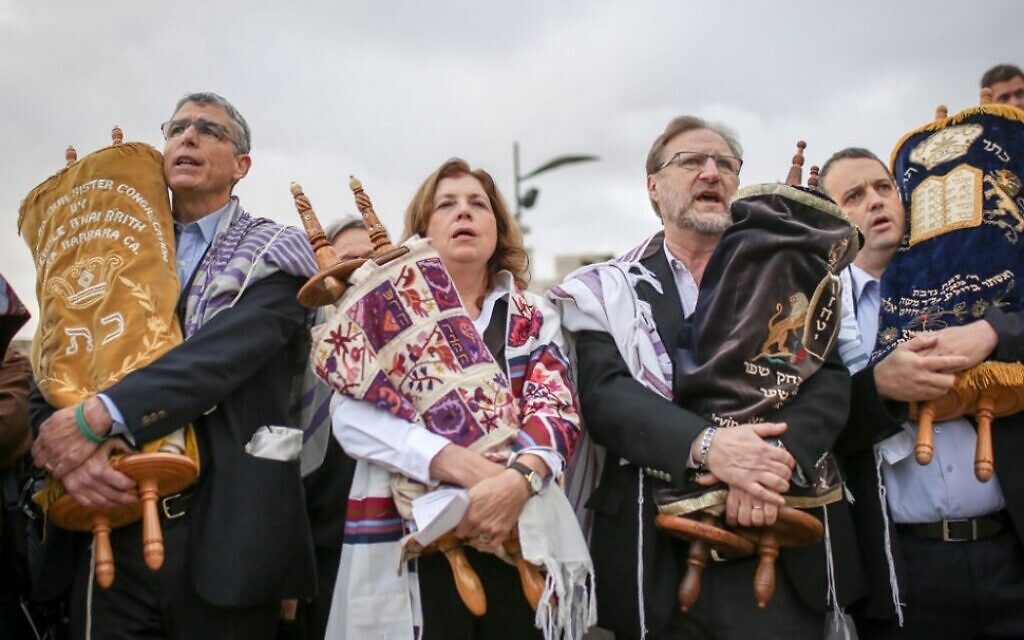
Israel’s High Court of Justice issued a groundbreaking ruling on Monday that will mean formal recognition by the state to non-Orthodox Jewish communities in the country — and likely spark a dramatic uptick in the country’s religious culture wars and, quite possibly, a move in the Knesset to clip the wings of the court.
But first, what the decision doesn’t do: it does not require the Haredi-controlled state rabbinate to recognize Reform and Conservative conversions. Only the Interior Ministry must do so.
And even there, the decision only slightly expands the scope of the Interior Ministry’s existing recognition for those conversions. After all, the Interior Ministry has for two decades formally accepted Reform and Conservative conversions conducted overseas as conferring the right to citizenship under the Law of Return.
Monday’s ruling is, in a sense, very narrow. It instructs the Interior Ministry (but not the rabbinate) to recognize as Jewish for the purposes of immigration (but for no other purposes, such as marriage or burial) only those few Reform and Conservative conversions conducted each year inside Israel. That’s the change.
As of Monday, a non-Jewish non-Israeli living in Israel who converts to Judaism in the Conservative or Reform religious streams and then asks to become a citizen based on the Law of Return will have their conversion recognized by non-religious state bodies as conferring on them that right.
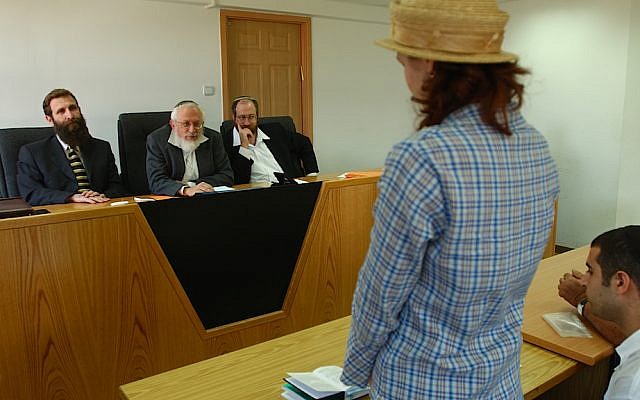
Why, then, all the fuss? Why are Haredi parties warning of dire consequences and vowing to legislate to weaken the court’s powers in response?
Two reasons. First, in recognizing for the first time conversions done inside Israel, the State of Israel will necessarily be recognizing in a formal way the Reform and Conservative movements themselves, the institutions that are doing or have done the converting. Second, coming just 22 days before the election, the ruling promises to become a rallying cry for religious conservatives and liberals alike.
Recognition
Exceedingly few people are likely to be affected by the ruling.
In 2005, the High Court recognized what are known as “giyurei kfitzah,” literally “hop conversions,” as granting immigration rights under the law of return. “Hop conversions” are carried out by converts who live and study for their conversion in Israel, then “hop” overseas to conduct the official conversion ceremony in a Diaspora community in order to get Israeli state recognition.
In the most prosaic and practical terms, the new ruling merely spares the prospective convert/immigrant a short trip abroad.
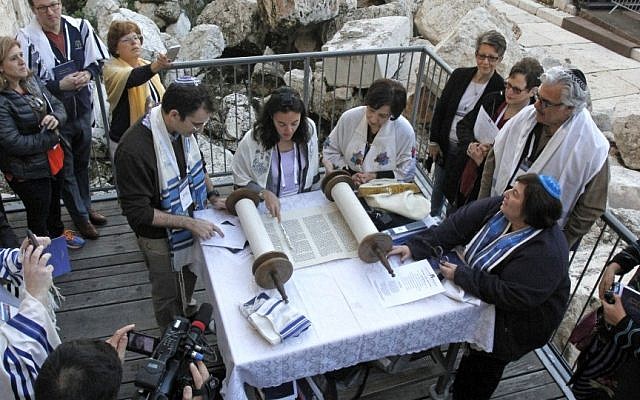
But the decision nevertheless does something profound for the Reform and Conservative movements.
For two decades, the state has recognized overseas conversions as conferring immigration rights according to a test established by the High Court, often called the “recognized community” test. That is, Interior Ministry officials are asked to ascertain if the convert received their conversion in a Jewish community that is recognized as such by the rest of the Jewish communities in their country or region. (It’s a bit more complex than that, with several agencies and organizations doing the recognizing, but the details aren’t relevant here.)
The key point: That “recognized community” test has now been expanded to Israel.
The Jewish state has long refused to recognize the institutions of the Reform and Conservative movements in the country, a shunning rooted in the political power of the ultra-Orthodox and religious-Zionist political parties.
That wall of rejection has seen cracks over the years. In founding the Ne’eman Committee in 1997, a first-term Prime Minister Benjamin Netanyahu for the first time appointed a Reform and a Conservative representative, rabbis Uri Regev and Reuven Hammer, respectively, to an official state committee.
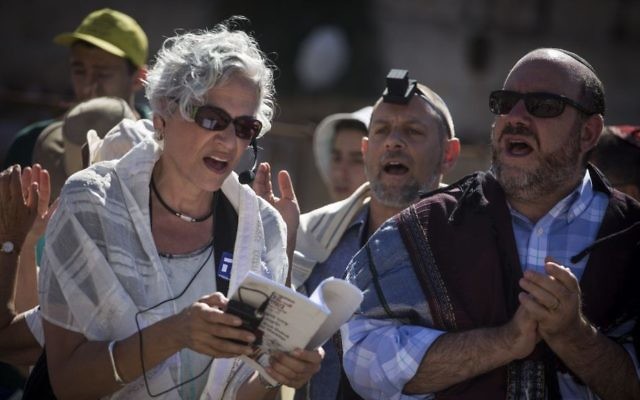
Since then, Reform and Conservative representatives played key roles in the development of the Western Wall compromise that would have established a permanent egalitarian section at the holy site, with joint oversight including non-Orthodox representatives. The plan won cabinet approval in January 2016 but was canceled by Netanyahu in June 2017, after his Haredi coalition partners protested the plan’s official recognition of the liberal religious streams. (The prayer pavilion itself was opened in 2013, and is in constant use.)
Now, for the first time in a formal and specific way, the Jewish state that has refused to recognize the institutions of the Reform and Conservative movements will officially acknowledge those institutions as a “recognized community” able to confer immigration rights on their converts.
For the first time, Israel will officially see and engage with the liberal streams inside the country.
‘Freedom of religion for Jews’
The ruling also comes three weeks before an election already shaped by the religious culture wars.
Secular-Haredi tensions have risen over the past year, exacerbated by the flouting of social-distancing restrictions in some Haredi communities.

The Yisrael Beytenu party, for example, adopted “End Haredi rule” as its campaign slogan.
Opposition leader Yair Lapid of secularist Yesh Atid party welcomed Monday’s decision with a call for Israel to institute “complete equality of rights for all streams of Judaism – Orthodox, Reform or Conservative,” and promised a government led by him would “put an end to the ridiculous situation whereby Israel is the only democracy in the world without freedom of religion for Jews.”
And what of the religious right?
“The High Court’s decision to recognize Reform and Conservative conversions is mistaken, very unfortunate, and will cause deep division and dissension in the country,” lamented Shas party leader Aryeh Deri, who is also the interior minister, and so must now implement the court’s decision.
Never fear, Deri said in a statement, “I promise to amend the law so that only conversion according to Jewish law is recognized by the State of Israel.”
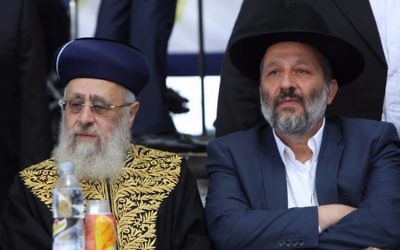
The ruling Likud party also issued a statement, though it was so vague that it was hard to know what was being promised or threatened.
The statement, in a tweet several hours after the ruling, read: “The High Court issued a ruling that endangers the Law of Return, which is a foundational pillar of the State of Israel as a Jewish and democratic state. Only a vote for Likud will ensure a stable right-wing government that will restore sovereignty to the people and the Knesset.”
Prominent right-leaning pundit Amit Segal translated the vague promises for the uninitiated: “After the elections, prepare for the return of the ‘supersession clause,'” a bill long favored by the right that would grant the Knesset the power to overturn High Court rulings.
Very little is likely to change in the life of Reform and Conservative converts because of Monday’s ruling. But Israel itself will change.
If the ruling stands, it will mark a watershed in state recognition for Jewish religious options long rejected by Orthodox political parties and the state rabbinic apparatus.
If a religious-right government is spurred by the decision to legislate a “supersession clause,” that too would mark a watershed in the balance of power between the Knesset and the High Court.


